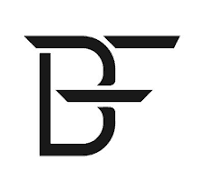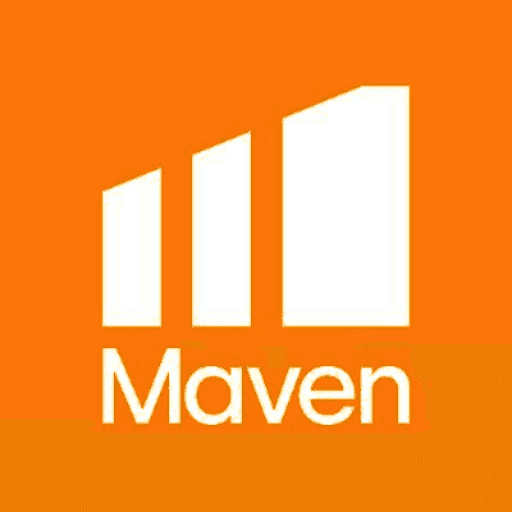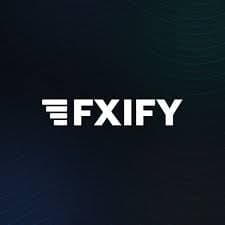Bridge Funded Review 2026 – Prop Firm Features, Rules & Payout Explained
Read our full Bridge Funded review, including a detailed breakdown of Challenge types, Drawdown rules, Prohibited Strategies, and Payout process.

1.0
1.0
Bridge Funded
Forex, Crypto, Indices, Commodities, Metals, Stocks
AE
2025
CEO: Ali Berke Tukenmez
DXTrade
Crypto
Rise
Crypto
Rise
If you are looking for a new prop trading firm that offers low cost challenges, high leverage and flexible rules? Bridge Funded is one of the latest additions to the proprietary trading space in 2025. Operated under BRIDGE FINANCIAL GROUP - FZCO, the firm provides traders with access to funded accounts, bi-weekly payouts and a straightforward 2-Step Challenge model. In this Bridge Funded review - we will break down everything about Bridge Funded, including its rules, pricing, payout system and trading conditions - so you can decide if it is the right prop firm for you.
Bridge Funded Prop Firm Overview
| Category | Details |
|---|---|
| Company Name | Bridge Funded |
| Legal Name | The legal name of Bridge Funded is BRIDGE FINANCIAL GROUP - FZCO |
| Registration Number | The registration number of Bridge Funded is 60529 |
| CEO | The CEO of Bridge Funded is Ali Berke Tukenmez |
| Headquarters | Bridge Funded is located in Dubai |
| Broker | Not specified |
| Operating Since | Bridge Funded was launched in August 2025 |
| Account Sizes | Bridge Funded offers account sizes ranging from $5,000 to $100,000 |
| Profit Split | Bridge Funded offers 80% profit split |
| Challenge Types | Bridge Funded offers 2-Step Standard Challenge and 2-Step Swing Challenge |
| Payout Cycle | Bridge Funded supports bi-weekly payout |
| Payout Method | Bridge Funded supports Rise and Crypto for withdrawing profits |
| Trading Platforms | Bridge Funded supports DxTrade trading platform |
| Financial Markets | Bridge Funded offers trading instrument like Forex, Crypto, Indices, Commodities, Metals, Stocks |
| Trustpilot Score | Not available yet (new firm) |
Pros and Cons of Trading with Bridge Funded
Bridge Funded is a new prop trading firm launched in August 2025 - aiming to provide traders with a fair and transparent environment. With low cost challenges starting at $49, no time limits and bi-weekly payouts - it appeals to both beginner and experienced traders. At the same time, the firm restricts some trading strategies and doesn’t currently offer a structured scaling plan - which may be a drawback for certain traders.
| Pros | Cons |
| Low entry cost (from $49) | No EA or copy trading allowed |
| Bi-weekly payouts with 80% profit split | No official scaling plan in place |
| Swing accounts allow news and weekend trading | Long list of restricted countries |
| Low spreads (from 0.1) | Balance-based drawdown may not suit all traders |
Bridge Funded Challenge Types, Fees & Profit Split Explained (2025)
Bridge Funded currently offers two challenge models: the 2-Step Standard Challenge and the 2-Step Swing Challenge. Both follow the same evaluation structure with an 8% profit target in Phase 1 and 5% in Phase 2, a 10% overall drawdown and a 5% daily loss limit. The main difference is that Swing accounts allow news trading and weekend holding, while Standard accounts do not.
Challenge Comparison Table
| Feature | Standard Challenge | Swing Challenge |
|---|---|---|
| Account Sizes | $5K, $10K, $25K, $50K, $100K | $5K, $10K, $25K, $50K, $100K |
| Challenge Fees (Start From) | $49 | $59 |
| Profit Target | 8% (Phase 1), 5% (Phase 2) | 8% (Phase 1), 5% (Phase 2) |
| Daily Drawdown | 5% | 5% |
| Max Drawdown | 10% | 10% |
| Drawdown Type | Balance-Based | Balance-Based |
| Minimum Trading Days | 3 | 3 |
| Maximum Trading Days | Unlimited | Unlimited |
| Leverage | 100x | 100x |
| Stop Loss Rule | Not Required | Not Required |
| Consistency Score Rule | None | None |
| News Trading Allowed | No | Yes |
| Profit Split | 80% | 80% |
| Payout Frequency | Bi-weekly | Bi-weekly |
2-Step Standard Challenge
The Standard Challenge is the most affordable way to get started with Bridge Funded. It is designed for short term and intraday traders who don’t rely heavily on holding trades over the weekend or trading major news events.
| Account Size | Challenge Fee | Profit Target | Max Daily Drawdown | Max Total Drawdown |
| $5,000 | $49 | 8% / 5% | 5% | 10% |
| $10,000 | $95 | 8% / 5% | 5% | 10% |
| $25,000 | $225 | 8% / 5% | 5% | 10% |
| $50,000 | $345 | 8% / 5% | 5% | 10% |
| $100,000 | $575 | 8% / 5% | 5% | 10% |
Why Choose 2-Step Standard Challenge?
This model is best for traders who want a low cost entry point and prefer intraday strategies. With no time limit and a straightforward rule set - this provides flexibility without adding any unnecessary restrictions.
2-Step Swing Challenge
The Swing Challenge is slightly more expensive but adds important benefits - news trading and weekend holding are allowed. This makes it more suitable for traders who rely on longer term setups, swing trading or event-driven trading strategies.
| Account Size | Challenge Fee | Profit Target | Max Daily Drawdown | Max Total Drawdown |
|---|---|---|---|---|
| $5,000 | $59 | 8% / 5% | 5% | 10% |
| $10,000 | $115 | 8% / 5% | 5% | 10% |
| $25,000 | $249 | 8% / 5% | 5% | 10% |
| $50,000 | $378 | 8% / 5% | 5% | 10% |
| $100,000 | $619 | 8% / 5% | 5% | 10% |
Why Choose 2-Step Swing Challenge?
The Swing account is ideal for swing traders, news traders and those who don’t want to close trades over the weekend. Although the challenge fee is slightly higher, the added flexibility makes it a better choice for strategies that require longer holding periods.
Our Review of Bridge Funded Challenge Types
Bridge Funded keeps things simple by offering just two challenge types - the Standard Challenge and the Swing Challenge. Both challenges share the same trading rule set with 8% and 5% profit targets, a 10% max drawdown, 5% daily loss limit and no time restrictions - making them one of the top choices for traders who value flexibility.
The Standard Challenge is the more affordable option starting at just $49 making it suitable for traders who prefer intraday or short-term trading strategies. On the other hand, the Swing Challenge - though slightly more expensive it offers more freedom by allowing news trading and weekend positions - catering to swing traders and event-driven strategies.
Overall, Bridge Funded’s challenges are competitively priced, beginner friendly and designed with fair rules - giving traders the ability to focus on performance without the stress of time pressure. For traders who want the lowest prop firm entry cost - the Standard model is a solid pick while traders who need more flexibility will find the Swing account worth the extra fee.
Bridge Funded Drawdown and News Trading Rules
Bridge Funded has designed its drawdown structure and news trading rules to balance risk management with trader flexibility - making it easier for participants to plan their strategies effectively.
Drawdown Details
Bridge Funded uses a balance based drawdown system which many traders prefer for its clarity and predictability. This means that both the daily loss limit (5%) and the overall loss limit (10%) are calculated based on your account balance, not floating equity. The daily drawdown is measured at end of day (EOD) which provides more breathing room for open trades during market fluctuations.
This approach is particularly trader friendly because it avoids unnecessary stop outs caused by temporary intraday volatility - giving you more control over your risk.
News Trading Details
News trading is allowed only on Swing Accounts at Bridge Funded. Standard challenge accounts do not permit trading during high impact news events. This news trading rule ensures that traders who rely on long term or event-driven strategies can opt for Swing accounts while short-term or intraday traders may prefer the Standard model.
With weekend holding also permitted on Swing accounts - traders get added flexibility to manage positions across different market conditions.
Bridge Funded Spreads & Commissions - What You Really Pay
When choosing a prop firm, trading costs like spreads and commissions play a big role in your overall profitability. Bridge Funded keeps its pricing structure competitive by offering tight spreads starting as low as 0.1 and a clear commission model of $2 per side.
This combination makes the trading environment cost effective especially for active traders who rely on scalping or frequent entries. Since spreads are among the lowest in the industry, traders get better trade execution without hidden markups. The fixed commission rate also ensures transparency, so you always know what you’re paying per trade.
In short, Bridge Funded offers a low cost trading environment that allows traders to focus on strategy instead of worrying about high fees eating into profits.
Trading Instruments Offered by Bridge Funded
Another factor traders consider when joining a prop firm is market variety and Bridge Funded provides a wide selection of instruments to suit different trading styles.
With Bridge Funded, you can trade across:
- Forex - Major, minor, and exotic currency pairs
- Cryptocurrencies - Popular coins like Bitcoin and Ethereum
- Indices - Global stock market indices
- Commodities - Energy products like oil and gas
- Metals - Gold, silver, and other precious metals
- Stocks - Leading equities from global markets
This broad range of instruments allows traders to diversify and test strategies across multiple asset classes. Whether you are a forex day trader, a crypto enthusiast or someone who prefers long term positions in indices and commodities, Bridge Funded ensures you have enough market coverage to build a versatile trading plan.
Bridge Funded Trading Rules (2025): What is Allowed and What is Not
When joining a prop firm - understanding the trading rules is just as important as the challenge itself. Bridge Funded has a clear rule structure designed to encourage consistent risk management while giving traders enough flexibility to trade their preferred trading style. Below is a breakdown of what’s allowed, what’s restricted and the practices that can lead to violations.
Trading Rules Overview
| Trading Strategy / Practice | Allowed? | Details |
|---|---|---|
| News Trading | Only on Swing Accounts | Standard accounts restrict news events, but Swing accounts allow full news trading. |
| Weekend Holding | Allowed | Positions can be held over weekends. |
| Copy Trading / Account Mirroring | Not Allowed | Copying trades across accounts is strictly prohibited. |
| EA / Automated Trading | Not Allowed | Bridge Funded requires manual trading only. |
| Martingale | Not Allowed | High-risk doubling strategies are banned. |
| Layering | Not Allowed | Placing multiple orders to manipulate execution is not permitted. |
| Scalping / Day Trading | Allowed | As long as traders stay within risk limits. |
| Swing Trading | Allowed | Best suited for Swing accounts with news and weekend holding enabled. |
| Hedging | Allowed | Traders may hedge positions within the same account. |
Prohibited Trading Practices at Bridge Funded
While most common trading styles are supported - the following trading practices are explicitly prohibited by Bridge Funded:
- Martingale systems (risk-heavy compounding after losses)
- Layering or order-stacking to manipulate market execution
- Copy trading / trade mirroring across accounts
- Fully automated EA trading or bots
Bridge Funded is focused on fair play and risk discipline which is why these strategies are restricted.
Scaling Plan at Bridge Funded
Account scaling is a key feature many traders look for when choosing a prop firm as it allows them to grow their capital allocation over time. Bridge Funded currently offers a maximum allocation of $200,000 per trader, but unlike other firms it does not yet provide a structured scaling plan.
This means:
- Traders can manage accounts up to $200K.
- There is no progressive growth model where accounts automatically scale after reaching profit milestones.
- The capital growth is limited to the maximum allocation cap rather than an ongoing expansion plan.
For traders who prioritise affordable entry fees, high leverage and flexible rules - the absence of a scaling plan may not be a major drawback. However, if your long term goal is to scale to multi-million-dollar accounts then this is something to keep in mind.
Payment Methods & Payout Process at Bridge Funded
When choosing a prop trading firm, payment flexibility and reliable payouts are two of the most important factors traders consider. Bridge Funded offers straightforward options for both depositing challenge fees and withdrawing profits ensuring a smooth experience for its traders.
Supported Payment Methods
Bridge Funded currently supports payments of challenge accounts through:
- Rise
- Cryptocurrency
These payment options provide global accessibility - allowing traders from different regions to easily purchase Bridge Funded challenges without relying on traditional banking systems.
Payout Options
Once a trader qualifies for a funded account, profits can be withdrawn using the same methods:
- Rise
- Crypto
This keeps the process simple and consistent - especially for traders already familiar with crypto based transactions.
How the Payout Process Works
The payout process at Bridge Funded is designed to be clear and consistent for traders:
- Profit Split: Traders receive an 80% share of profits generated.
- Payout Frequency: Withdrawals are available bi weekly (every two weeks).
- Processing: Once requested - the payouts are processed through the chosen method (Rise or Crypto) - giving traders flexibility and speed.
By keeping the system simple and transparent - Bridge Funded ensures that traders can focus on trading rather than worrying about complicated withdrawal procedures.
Countries Restricted at Bridge Funded
Before joining any prop trading firm, it is important to know whether your country is eligible. Bridge Funded has outlined a list of restricted regions where traders are not allowed to purchase challenges or open accounts. This is mainly due to regulatory, legal or compliance reasons. If you live in one of the following countries then you won’t be able to participate in Bridge Funded’s programs:
Afghanistan
Antigua and Barbuda
Belize
Bhutan
Bouvet Island
Burundi
Cape Verde
Central African Republic
Chad
Comoros
Congo
Cook Islands
Cuba
Djibouti
Eritrea
Eswatini
Fiji
Guinea
Haiti
Iran
Iraq
Kiribati
Lesotho
Liberia
Libya
Malawi
Mali
Marshall Islands
Myanmar
Niue
North Korea
Qatar
Republic of Belarus
Russian Federation
Saint Barthelemy
Saint Kitts and Nevis
Saint Lucia
Saint Vincent and the Grenadines
Sao Tome and Principe
Saudi Arabia
Seychelles
Sierra Leone
Solomon Islands
Somalia
South Sudan
Sudan
Syria
Timor-Leste
Tokelau
Tonga
Turkey
Tuvalu
United Arab Emirates (UAE)
Ukraine (Crimea, Donetsk, Luhansk regions)
Vanuatu
Venezuela
Yemen
Western Sahara
If your country is on this list, you will need to consider alternative prop firms that allow traders from your region.
Our Final Verdict on Bridge Funded
Bridge Funded is a new entrant to the prop trading industry, but it has quickly positioned itself as a competitive option for traders looking for affordable challenges and flexible rules. With low cost evaluations starting at just $49, high leverage up to 100x, no time limits and bi-weekly payouts - Bridge Funded appeals strongly to active traders who prefer manual trading strategies.
The availability of both Standard and Swing challenges also gives traders the freedom to choose whether they want to trade news and hold positions over weekends. On top of that, the tight spreads, balance based drawdown and simple rules make the trading conditions fair and transparent.
That said, there are some limitations to keep in mind. EA trading and copy trading are not allowed, which may discourage algorithmic traders. The firm also does not currently offer a defined scaling plan - meaning long term growth options are somewhat limited compared to established competitors. Additionally, the list of restricted countries is extensive which reduces accessibility for some global traders.
Overall, Bridge Funded shows strong potential as a new prop firm. For traders who want a low-barrier entry into funded trading with clear rules and generous leverage, it’s a firm worth considering. However, since it’s still new, it’s wise to keep an eye on how the firm develops over time in terms of reliability, scaling opportunities and trader support.






















